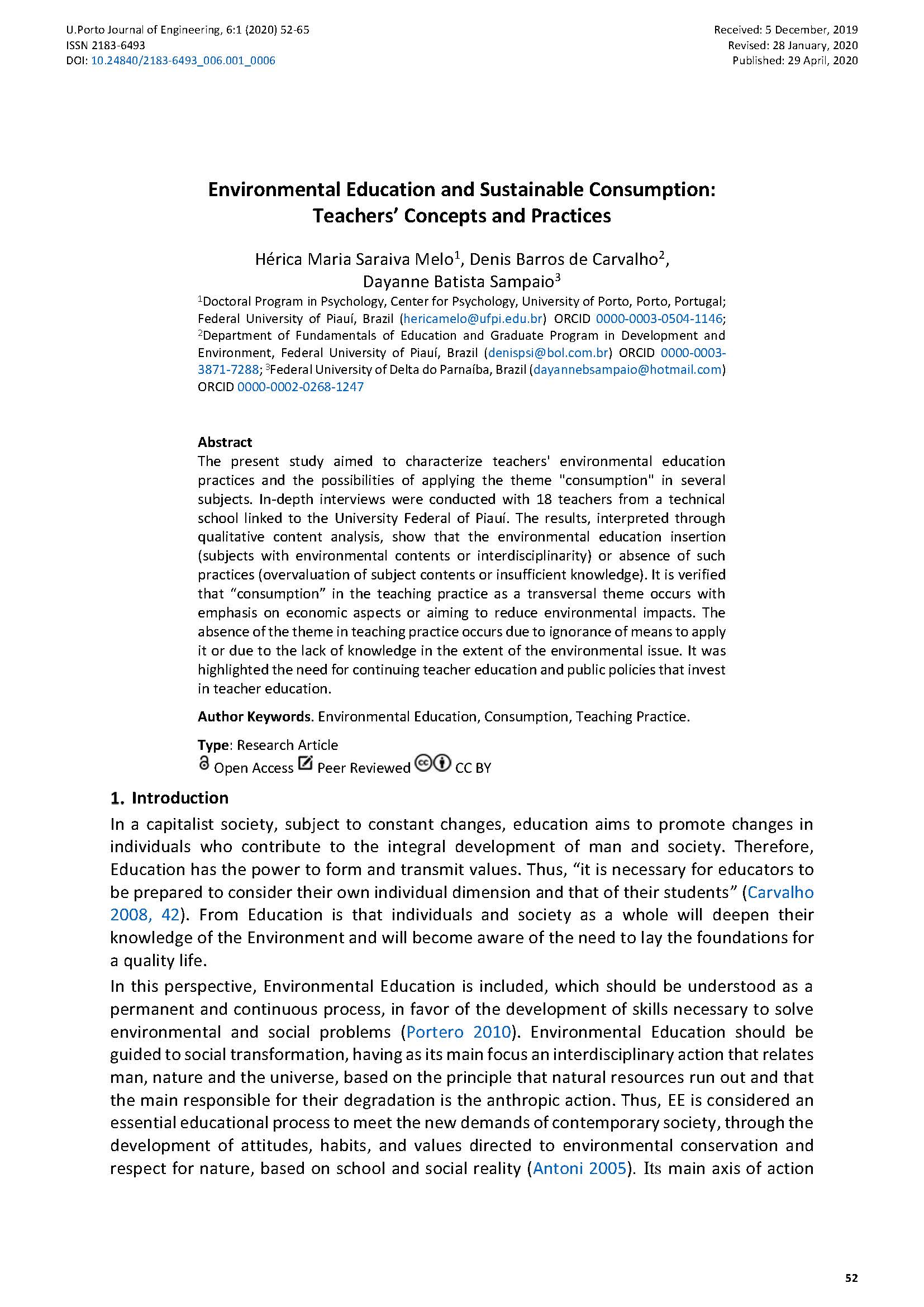Environmental Education and Sustainable Consumption Teachers’ Concepts and Practices
Main Article Content
Abstract
The present study aimed to characterize teachers' environmental education practices and the possibilities of applying the theme "consumption" in several subjects. In-depth interviews were conducted with 18 teachers from a technical school linked to the University Federal of Piauí. The results, interpreted through qualitative content analysis, show that the environmental education insertion (subjects with environmental contents or interdisciplinarity) or absence of such practices (overvaluation of subject contents or insufficient knowledge). It is verified that “consumption” in the teaching practice as a transversal theme occurs with emphasis on economic aspects or aiming to reduce environmental impacts. The absence of the theme in teaching practice occurs due to ignorance of means to apply it or due to the lack of knowledge in the extent of the environmental issue. It was highlighted the need for continuing teacher education and public policies that invest in teacher education.
Downloads
Article Details
Authors who publish with this journal agree to the following terms:
- Authors retain copyright and grant the journal right of first publication with the work simultaneously licensed under a Creative Commons Attribution License that allows others to share the work with an acknowledgement of the work's authorship and initial publication in this journal.
- Authors grant the journal the rights to provide the article in all forms and media so the article can be used on the latest technology even after publication and ensure its long-term preservation.
- Authors are able to enter into separate, additional contractual arrangements for the non-exclusive distribution of the journal's published version of the work (e.g., post it to an institutional repository or publish it in a book), with an acknowledgement of its initial publication in this journal.
- Authors are permitted and encouraged to post their work online (e.g., in institutional repositories or on their website) prior to and during the submission process, as it can lead to productive exchanges, as well as earlier and greater citation of published work (See The Effect of Open Access).

